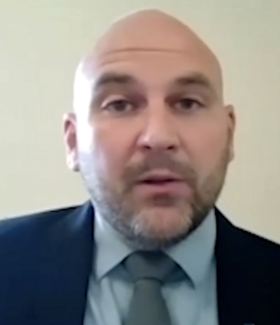Ageism Among Rheumatologists May Affect Care Delivery
Health care professionals (HCPs) in rheumatology may hold implicit or explicit biases about aging that influence clinical care decisions, according to a recent study.
This cross-sectional survey-based study explored ageism among clinicians treating patients with rheumatic disease, using the validated Expectations Regarding Aging (ERA-12) scale to assess attitudes.
A total of 255 rheumatology-focused HCPs completed the survey between January and December 2023. The majority of respondents were women (63%), White (70%), and physicians (75%), predominantly practicing in academic (66%) and urban (64%) settings. Most (88%) reported that older adults (>65 years) made up more than a quarter of their patient population. The median ERA-12 score was 36 out of 48, suggesting a general disagreement with ageist stereotypes among respondents.
Higher ERA-12 scores—indicating fewer ageist attitudes—correlated with a more positive outlook toward caring for older adults and increased familiarity with the Geriatric 5Ms (mind, mobility, medications, multicomplexity, and matters most) (P < 0.001). These professionals were more likely to view care of older adults as enjoyable and to integrate age-friendly care models. Conversely, lower ERA-12 scores were significantly associated with less favorable beliefs, including perceptions that older adults are more demanding and a tendency to shift from disease-modifying treatment toward symptom relief in this population (P < 0.001).
The study highlights how clinician perceptions of aging may subtly shape treatment strategies. “Stereotypical beliefs regarding aging are associated with self-reported changes to patient counseling and medical decision-making,” the authors write.
Reference:
Smith AP, Achanta PM, Lee J, Singh N, Makris UE. Ageism in rheumatology: The health care professional’s perspective. Arthritis Care Res (Hoboken). Published online April 21, 2025. doi:10.1002/acr.25557












